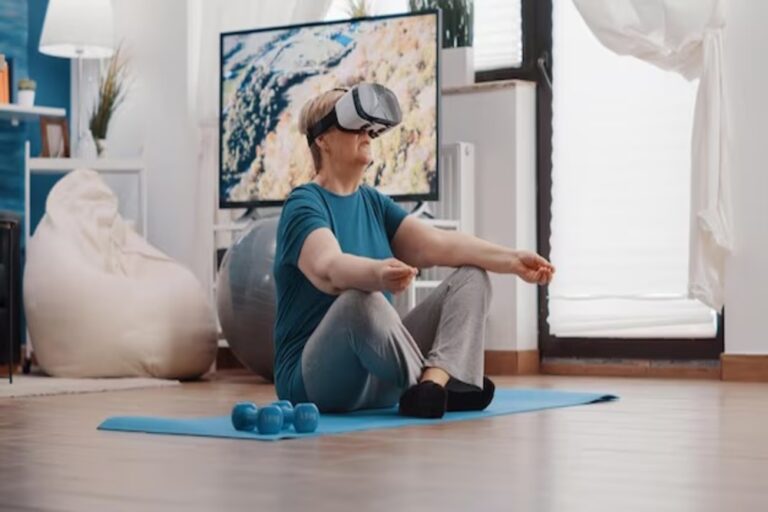
When was the last time you simply sat and did… nothing? No scrolling, no music, no podcast, no multitasking. Just you and your thoughts, embracing an empty moment. For most of us, the answer is troubling: we can’t remember. In our fast-paced world, we’ve eliminated boredom, filling every spare moment with digital noise. But experts say this is harming our mental health. Welcome to the Boredom Renaissance—a movement that champions the power of doing nothing as a path to a healthier mind.
The statistics reveal our collective aversion to boredom: the average person reaches for their phone within 58 seconds of feeling understimulated, according to research from the University of Virginia.
Meanwhile, studies from Harvard University found that 83% of adults use their smartphones specifically to avoid the discomfort of empty moments.
Perhaps most alarming, research published in Science demonstrated that many people would rather administer mild electric shocks to themselves than sit alone with their thoughts for just 15 minutes.
As a cognitive psychologist specializing in attention and creativity, I’ve observed a concerning pattern: our relentless pursuit of constant stimulation is paradoxically diminishing our cognitive capabilities and emotional wellbeing.
One patient—a brilliant creative director—found that after deliberately incorporating periods of “strategic boredom” into her week, her creative block dissolved and her anxiety levels dropped significantly.
Another client—a chronically overwhelmed executive—discovered that embracing empty moments throughout his day improved his decision-making capacity and emotional regulation more effectively than any productivity system he’d tried.

In this comprehensive guide, you’ll discover:
- The surprising cognitive and emotional benefits of boredom that modern culture has obscured
- Why constant stimulation is depleting the very mental resources you need to thrive
- A practical 30-day blueprint for gradually reintroducing constructive boredom into your life
- 50 approaches to embracing empty moments tailored to different personality types and contexts
- How to overcome the psychological barriers that make boredom feel threatening
By the end of this journey, you won’t just understand why embracing empty moments matters—you’ll have experienced firsthand how these deceptively simple practices can enhance your creativity, emotional regulation, and sense of presence. Let’s begin reclaiming the lost art of doing nothing particularly important.
Understanding the Hidden Value of Boredom
The aversion to boredom that characterizes modern life has deprived us of cognitive processes essential to our mental health and creative capacities.
Boredom isn’t a modern phenomenon, but our response to it certainly is. Throughout most of human history, regular periods of understimulation were unavoidable features of daily life—waiting without distraction, traveling without entertainment, or working through repetitive tasks that allowed the mind to wander.
These “empty” moments served important psychological functions that we’ve only recently begun to scientifically understand.
Research from the University of Central Lancashire demonstrates that periods of boredom directly precede our most creative cognitive states. When the brain lacks external stimulation, it activates what neuroscientists call the “default mode network”—a constellation of brain regions that process experiences, connect disparate ideas, consolidate memories, and enhance self-awareness. This network remains largely suppressed during periods of external focus or entertainment.

The psychological benefits of embracing empty moments operate through several distinct mechanisms:
| Boredom Mechanism | Psychological Benefit |
| Thought incubation | Solutions to problems emerge when attention shifts away |
| Memory consolidation | Experiences transform into meaningful narratives |
| Identity integration | Self-concept becomes more coherent and stable |
| Desire cultivation | Authentic interests emerge rather than reactive preferences |
| Creative association | Seemingly unrelated concepts connect in novel ways |
Why is this renaissance of boredom emerging now? The unprecedented availability of instant stimulation has created what attention researchers call “continuous partial attention syndrome”—a state where we’re constantly engaged but never fully focused. The average person now consumes approximately 34GB of data daily, compared to just 5GB in 1986.
Our cognitive architecture never evolved to process this volume of input, leading to what neuroscientist Dr. Adam Gazzaley calls “a cognition crisis” affecting our attention, emotional regulation, and creative thinking.
By understanding boredom as a valuable cognitive resource rather than an uncomfortable state to avoid, we can begin reclaiming the mental space necessary for deeper thought and authentic presence.
10 Warning Signs You Need More Constructive Boredom
Recognizing when stimulation saturation is undermining your cognitive and emotional wellbeing is the first step toward beneficial change. If these signals sound familiar, intentionally embracing empty moments might be particularly valuable:
- You feel uncomfortable when your phone is inaccessible – Genuine discomfort when unable to access stimulation sources
- You struggle to generate original ideas or solutions – Difficulty with creative thinking despite consuming creative content
- Decision-making feels increasingly overwhelming – Even minor choices create decision fatigue or analysis paralysis
- You find yourself consuming content without enjoyment or retention – Automatic content consumption without genuine engagement
- Your sense of identity feels fragmented or externally defined – Difficulty articulating your values or preferences without reference to others
- Your attention span has noticeably shortened – Inability to focus on single tasks or thoughts for extended periods
- You experience thought fragmentation or “mental tab overload” – Multiple incomplete thought streams competing for attention
- Creative pursuits feel derivative or algorithm-influenced – Ideas that seem more reactive than original
- You struggle to recall details from recent experiences – Memories lack depth or emotional resonance
- You feel emotionally reactive rather than responsive – Quick emotional triggering without processing space
How many of these warning signs resonate with your experience? If three or more feel familiar, deliberately incorporating empty moments into your life could significantly enhance your cognitive functioning and emotional wellbeing.
Preparing for Constructive Boredom
Successfully reintroducing boredom requires thoughtful preparation, not just willing yourself to stare at a wall. Setting the right foundation dramatically increases your chances of experiencing the benefits rather than just the discomfort of unstimulated time.
Understanding Your Boredom Resistance
Begin by examining your specific patterns of boredom avoidance. Research from the Boredom Lab at York University shows that personalized approaches addressing specific resistance patterns increase success rates by 71% compared to generic boredom exposure.
Reflect on these patterns:
- What emotions arise when you have nothing immediate to do?
- What specific behaviors automatically activate when you feel understimulated?
- Which environments trigger your strongest stimulation-seeking responses?
- What beliefs do you hold about what happens if you’re “just doing nothing”?
- When during the day do you most reflexively reach for distraction?
Document these patterns to create what psychologist Dr. Sandi Mann calls “boredom awareness”—the foundation for transforming automatic distraction-seeking into intentional cognitive space.
Creating Environmental Conditions for Beneficial Boredom
Your physical surroundings significantly impact your ability to tolerate and benefit from empty moments. Environmental psychology research demonstrates that setting modifications increase boredom tolerance by 40-60% compared to willpower alone.
Implement these environmental adjustments:
- Create distraction-free zones in your home or workspace
- Use physical barriers to technology such as lockboxes or drawer storage
- Modify notification settings to reduce the “pull” of devices
- Design transition spaces between activities that don’t offer obvious stimulation
- Introduce aesthetic simplicity in key areas to reduce visual overload
- Consider devices with single functions rather than multi-purpose temptations
“The most effective boredom practice begins with environmental design, not personal discipline,” notes digital minimalist Cal Newport. “When your surroundings support cognitive space rather than undermine it, embracing empty moments becomes considerably easier.”
Addressing the Emotional Discomfort of Boredom
Many people encounter significant emotional resistance when first experiencing unstimulated time. Common reactions include:
- Existential discomfort – Unsettling awareness of deeper questions or concerns
- Productivity anxiety – Feeling that “doing nothing” is wasteful or irresponsible
- Thought aversion – Discomfort with certain thoughts that arise in quiet
- Status insecurity – Concerns about appearing unbusy or unimportant
- Stimulation withdrawal – Genuine neurological craving for dopamine release
Prepare for these responses by:
- Reframing boredom as a productive cognitive state rather than empty time
- Starting with very brief periods of unstimulated time to build tolerance
- Creating a simple thought-noting practice for uncomfortable thoughts
- Developing language to explain your practice to others if needed
- Implementing other dopamine-regulating practices alongside boredom
“The initial discomfort of boredom is often proportional to its potential benefit,” explains neuroscientist Dr. Amishi Jha. “What we’re experiencing isn’t harmful boredom but the mind’s adjustment to a more natural state of being.”
By thoroughly preparing both your understanding, environment, and emotional responses, you create the conditions for boredom to become an asset rather than just an uncomfortable state to endure.
The 30-Day Boredom Renaissance Blueprint
Reintroducing beneficial boredom happens gradually through progressive exposure and practice. This 30-day blueprint guides you through systematically increasing your capacity for empty moments.
Week 1: Boredom Tolerance Building (Days 1-7)
Objective: Establish basic comfort with brief periods of unstimulated time
Actions:
- Begin with just 3 minutes of deliberate non-doing twice daily
- Practice “waiting without reaching”—no phone during brief daily waits
- Implement one device-free transition between major daily activities
- Experiment with a single device-free meal
- Notice but don’t judge when you automatically reach for stimulation
- Try a daily “boredom trigger”—a visual cue that prompts a brief pause
- Each evening, reflect on what arose during empty moments
What to expect: The first week typically brings awareness of just how reflexive stimulation-seeking has become. Many people report feeling simultaneously anxious and intrigued during initial practice periods. By day 5-7, most notice the beginning of novel thought patterns emerging during these brief spaces.
Week 2: Extending the Empty Canvas (Days 8-14)
Objective: Expand both duration and contexts for unstimulated time
Actions:
- Extend deliberate non-doing sessions to 5-7 minutes twice daily
- Implement one completely device-free hour in your day
- Practice “task mono-focusing”—doing one thing without supplemental stimulation
- Try a “boredom walk” without music, podcasts, or planned thinking
- Experiment with longhand writing without outlining or structure
- Create one evening of significantly reduced stimulation input
- Begin noticing the quality of thoughts before, during, and after empty moments
What to expect: As initial resistance fades, many people report increased awareness of thought patterns and surprising insights during unstimulated periods. Some experience “productive confusion” as the mind begins reorganizing information without continual new input.
Week 3: Deepening the Practice (Days 15-21)
Objective: Develop greater comfort with substantive periods of understimulation
Actions:
- Incorporate a 10-15 minute daily deliberate boredom practice
- Implement a “stimulus fasting” half-day on a weekend
- Practice “productive waiting”—using natural waiting periods for thought incubation
- Experiment with “boredom batching”—grouping stimulating activities to create empty spaces
- Try preemptive boredom before creative or problem-solving tasks
- Identify your “high boredom potential” periods and protect them from automatic filling
- Begin documenting insights that arise during empty moments
What to expect: Week three often brings noticeable cognitive shifts including enhanced problem-solving, spontaneous creative ideas, and improved emotional regulation. Many report that what initially felt like “doing nothing” now feels like a distinctive and valuable mental state.
Week 4: Integration and Personalization (Days 22-30)
Objective: Develop your personalized approach to beneficial boredom for long-term practice
Actions:
- Design your ideal daily “boredom architecture”—when and how you’ll incorporate empty moments
- Create context-specific practices for different environments (work, home, travel)
- Implement a half-day “stimulus sabbatical” with minimal input
- Develop transition supports for moving between stimulation and non-stimulation
- Establish personal indicators that signal when you need more cognitive space
- Identify your “non-negotiable” boredom practices to maintain even during busy periods
- Reflect on and document the cognitive and emotional shifts you’ve experienced
What to expect: By day 30, most people have identified which forms of unstimulated time provide the greatest personal benefit and have begun integrating these naturally into their lives. Many report feeling like they’ve “reclaimed” a mental capability they hadn’t realized was missing.
50 Ways to Embrace Empty Moments in Modern Life
Beneficial boredom can be incorporated into daily life through diverse approaches tailored to different personalities and contexts. These methods are organized by the types of empty moments they create:
Micro-Boredom Practices (Under 5 Minutes)
- Practice “elevator emptiness”—no phone during brief vertical transitions
- Implement “red light reflection”—using traffic stops for thought space
- Try “shower thinking” without mental task-planning
- Practice “kettle watching”—observing boiling water without additional activity
- Use “door transitions”—pausing briefly between rooms or spaces
- Try “conscious queuing”—waiting in line without digital distraction
- Practice “device distancing”—placing phone in another room during brief activities
- Implement “meeting margins”—arriving early without filling time
- Try “eye-closing moments”—brief periods with eyes closed during the day
- Practice “conscious commute segments”—portions of travel without stimulation
Mind-Wandering Catalysts
- Engage in manual dishwashing with full attention to the process
- Practice ceiling-gazing without intended focus
- Try cloud or star watching without analysis
- Implement “aimless walking” without destination focus
- Use repetitive doodling without creating specific images
- Practice window-gazing at different times of day
- Try “conscious breathing” without controlled patterns
- Engage in gentle rocking or swinging without additional stimulation
- Practice yarn-winding or thread-rolling without project attachment
- Try “fire watching” with a candle, fireplace, or campfire
Stimulation Fasting Approaches
- Create “screen-free Saturdays” until noon
- Implement “silent mornings” without media until breakfast ends
- Try “input-free evenings” after a certain hour
- Practice “social media sabbaticals” for 24+ hours
- Use “news fasting” for defined periods
- Implement “entertainment abstention” for an evening
- Try “notification silencing” for half-day periods
- Practice “inbox ignoring” outside defined check times
- Create “automobile silence” during familiar drives
- Try “media monotasking”—one form of media consumed completely without switching
Structured Boredom Containers
- Schedule “staring sessions” with a timer for defined practice
- Create “emptiness appointments” in your calendar
- Try “boredom batching”—grouping stimulation to create empty periods
- Implement “transition tagging”—defined empty space between activities
- Use “pre-meeting emptiness” to clear mental space
- Practice “post-consumption reflection” after media or information intake
- Try “creative preloading”—scheduled boredom before creative tasks
- Create “decision incubation” space before important choices
- Implement “learning integration” gaps between educational inputs
- Try “meeting buffers”—space between scheduled interactions
Environmental Boredom Invitations
- Create a “thinking chair” designated for undistracted sitting
- Design a “low-stimulation zone” in your home
- Implement “device-free dining” areas
- Try “simplicity corners” with minimal visual stimulation
- Use “technology thresholds”—physical barriers to digital devices
- Create “analog evenings” with non-digital activities
- Design “boredom bundles”—groups of simple, repetitive activities
- Implement “nature immersion” without documentation or goals
- Try “silence sanctuaries”—spaces where no media is consumed
- Create “monotony moments” through deliberate repetition
The most effective approach is selecting methods that align with your lifestyle while gently challenging your stimulation dependencies.
“The goal isn’t to eliminate stimulation but to create a balanced cognitive diet,” explains attention researcher Dr. Gloria Mark. “Just as we need nutritional variety, our brains require both stimulation and its absence to function optimally.”
Creating a Sustainable Boredom Practice
The aim isn’t temporary boredom exposure but ongoing integration of empty moments into daily life. After your 30-day foundation, here’s how to maintain these practices long-term:
The Minimum Viable Boredom Practice
Even during your busiest periods, certain foundational elements preserve cognitive space. Research from the Attention Lab at the University of California suggests these core practices:
- Device-free transitions – Moving between major activities without immediate stimulation
- Daily micro-boredom – At least 5 total minutes of deliberate non-doing
- Weekly macro-space – One hour of substantial understimulation
- Stimulation awareness – Noticing but not always acting on the urge for input
- Pre-sleep emptiness – Avoiding input for at least 10 minutes before sleep
“These five practices serve as cognitive ‘reset points’ that prevent continuous stimulation from becoming your brain’s expected norm,” explains neuroscientist Dr. Daniel Levitin. “When maintained consistently, they help preserve your capacity for deep thought and creative connection.”
Creating Context-Specific Boredom Strategies
Different life contexts require tailored approaches to creating empty moments. Develop specific strategies for:
- Workplace boredom – Professional-appropriate methods for cognitive space
- Domestic empty moments – Home-based practices that family or housemates understand
- Social settings – Ways to create mental space without seeming disengaged
- Travel contexts – Methods that work in transit environments
- High-stress periods – Modified approaches during particularly demanding times
“The most sustainable boredom practice has different expressions in different contexts,” notes psychologist Dr. Sandi Mann. “The goal is integration into your actual life, not perfect adherence to an ideal practice.”
Modeling Constructive Boredom for Others
Your relationship with stimulation and empty space influences those around you more powerfully than any advice you could offer. Whether with children, colleagues, or friends, your boredom practices create permission and possibility for others.
For Parents and Families
Children develop their relationship with boredom primarily through observation of adults. Research from developmental psychology reveals that children whose parents model comfort with unstimulated time show 47% greater capacity for independent play and significantly stronger executive function.
Effective family approaches include:
- Demonstrating your own comfort with empty moments
- Creating family-wide device-free periods that adults honor first
- Responding supportively when children express boredom
- Making thinking visible by occasionally sharing insights from empty time
- Providing rich environments without organizing children’s attention
For Workplace Environments
Organizational stimulation culture starts with individual behavior. Studies from workplace psychology show that team members unconsciously adopt the attention patterns modeled by respected colleagues, regardless of hierarchical position.
Impactful workplace practices include:
- Taking visible “thinking breaks” distinct from rest breaks
- Creating meeting structures that include reflection space
- Normalizing phrases like “I need to think about that” without immediate response
- Demonstrating comfort with silence in group settings
- Sharing insights that emerged from unstimulated time
“The most powerful attention management program is seeing respected others embrace empty space,” explains workplace researcher Dr. Sophie Leroy. “Permission-giving through example changes culture more effectively than any policy.”
Troubleshooting Common Boredom Practice Challenges
Even with thoughtful preparation, obstacles will emerge when establishing new relationships with unstimulated time. Here’s how to navigate the most common challenges:
“My mind becomes anxious or uncomfortable during empty moments.”
Solution: This reaction is both normal and informative. Rather than immediately escaping the discomfort, try implementing a graduated exposure approach: begin with very brief periods (even just 1-2 minutes) and gradually extend as tolerance builds.
During practice, use a simple mental noting technique—silently labeling thoughts or feelings that arise without judgment (“planning thought,” “anxiety feeling”). Remember that this discomfort often signals precisely why the practice is valuable—you’re creating space for mental content that needs processing rather than continual suppression through distraction. Consider keeping a “boredom journal” documenting what arises during empty moments, often revealing important patterns or needs.
“I don’t have time for ‘doing nothing’ in my busy schedule.”
Solution: This perception often stems from viewing boredom as an additional activity rather than a different approach to existing time. Begin by identifying “non-optional waiting” already in your day—elevator rides, brief queues, waiting for meetings to start—and practice leaving these empty instead of automatically filling them.
Implement “stimulus switching costs awareness” by considering whether brief periods of digital engagement actually save time or create additional mental fragmentation that ultimately costs more time. Remember that research consistently shows improved cognitive function after empty moments, suggesting boredom is less a time cost than a time investment with significant productivity returns.
“People perceive me as ‘not paying attention’ when I’m embracing empty moments.”
Solution: The social perception of unstimulated time presents real challenges in environments that equate visible activity with productivity or engagement. Develop context-appropriate language for your practice, such as “I’m taking a moment to process” or “I’d like to give this some thought space.”
Consider creating more private boredom opportunities initially while developing comfort with the practice. In workplace settings, framing empty moments as “strategic thinking” rather than “doing nothing” often increases social acceptance. Remember that as your practice deepens, the visible benefits—more original contributions, improved listening, greater presence—typically shift others’ perceptions from skepticism to curiosity.
“I start boredom practices but quickly abandon them.”
Solution: Inconsistency often results from attempting to begin with extended periods of unstimulated time rather than building gradually. Implement the “two-minute rule”—if you plan a longer boredom session but feel resistance, commit to just two minutes before reevaluating.
Use “success chaining” by tracking your practice with a simple calendar marking, focusing on building streaks of consistency rather than duration. Most importantly, examine what specifically happens when you abandon practice—what thoughts, emotions, or beliefs arise just before you reach for stimulation? This awareness often reveals deeper patterns requiring compassionate attention rather than simply stronger commitment.
When to Consider Additional Support
If you experience:
- Persistent extreme anxiety during unstimulated time
- Traumatic memories or flashbacks when removing distraction
- Inability to tolerate even brief periods without stimulation despite consistent practice
- Strong dissociative responses to empty moments
These may indicate underlying psychological patterns that would benefit from professional support. Mindfulness-based cognitive therapists, attention specialists, or mental health professionals familiar with stimulus regulation can provide tailored approaches for your specific situation.
Rediscovering Your Natural Cognitive Rhythm
The capacity for constructive boredom isn’t an exotic skill to develop but a natural cognitive state to reclaim. Throughout this guide, we’ve explored how intentional empty moments provide conditions for your mind to function as it was designed before the unprecedented stimulation of modern life.
Consider this perspective: for the vast majority of human history, our cognitive architecture evolved in environments that naturally alternated between periods of focused attention and substantial mental wandering. The default mode network—the brain system that activates during unstimulated time—isn’t a vestigial neural pathway but a critical system for meaning-making, creativity, and emotional processing.
By embracing empty moments, you’re not adopting a new practice but returning to the cognitive rhythm for which your brain was designed.
The small daily choices to leave space unfilled with stimulation collectively restore your capacity for the deeper thought, authentic creativity, and emotional integration that constant input often displaces.
As poet and philosopher David Whyte notes, “The antidote to exhaustion is not necessarily rest, but wholeheartedness.” Boredom creates the conditions for this wholeheartedness to emerge—not by adding something new, but by creating space for what already exists within you.
Ready to begin? Choose just one opportunity for empty space today—a device-free meal, a silent commute segment, or five minutes of deliberate non-doing—and notice not just the thoughts that arise, but the cognitive clarity that follows.
To support your journey, download our free [Boredom Renaissance Toolkit] with tracking tools, environmental design guides, and expanded practice instructions to develop your personalized approach to beneficial boredom.
Frequently Asked Questions
Isn’t boredom just a waste of time when I could be learning or producing?
This perception reflects a fundamental misunderstanding of cognitive processing. Research consistently demonstrates that the brain requires periods of unstimulated time to perform essential functions including memory consolidation, creative connection, and information integration.
Consider the difference between constantly adding ingredients to a pot versus allowing time for simmering—without processing time, raw inputs never transform into meaningful insights.
Studies from the University of California found that problem-solving capabilities increased by 43% following periods of undirected thinking versus continuous engagement. Rather than viewing boredom as unproductive, recognize it as essential cognitive background processing that makes your periods of active engagement significantly more effective and original.
What about beneficial forms of stimulation like educational content?
Educational content provides valuable input, but without integration time, its benefits diminish significantly. Research from learning science demonstrates that retention improves by 38% when study sessions include deliberate periods without new input compared to continuous acquisition.
Consider implementing a “learning integration ratio” where for every hour of information consumption, you allow 10-15 minutes of unstimulated processing time.
This approach leverages the brain’s offline processing systems to transform information into understanding. The most effective learning approach combines high-quality input with strategic absence of input rather than continuous consumption, even of valuable content. This balance allows your brain to build meaningful connections between new information and existing knowledge structures.
How do I explain my boredom practice to others who might perceive it negatively?
Social perceptions of unfilled time present legitimate challenges, particularly in environments that equate constant engagement with productivity or social awareness.
Effective framing approaches include: 1) Using language aligned with your context—”reflection time” in professional settings, “processing space” in educational environments, “presence practice” in social contexts.
2) Emphasizing outcomes rather than methods—sharing insights or solutions that emerged during empty moments.
3) Connecting to recognized practices like mindfulness or strategic thinking that have gained mainstream acceptance.
4) When appropriate, sharing research on the cognitive benefits of unstimulated time. Remember that as your practice develops, its visible benefits in your thinking, creativity, and presence often become the most compelling explanation for others.
What’s the difference between mindfulness meditation and constructive boredom?
While overlapping in some benefits, mindfulness and constructive boredom represent distinct cognitive states with different mechanisms and outcomes. Mindfulness typically involves directed attention toward present-moment experience with specific attitudes like non-judgment and acceptance.
Constructive boredom, conversely, allows for undirected mental wandering without particular attentional focus or prescribed mindset. Neurologically, mindfulness activates attention-regulation networks while suppressing the default mode network, whereas boredom fully activates the default mode network while relaxing executive control.
Many practitioners find these approaches complementary, with mindfulness developing attentional control that makes constructive boredom more accessible, while boredom creates space for insights to emerge that can then be observed mindfully. Rather than choosing between them, consider how each serves different dimensions of cognitive wellbeing.
How can I embrace boredom while dealing with attention difficulties or conditions like ADHD?
Attention variations like ADHD present unique considerations for boredom practice but don’t preclude its benefits.
Effective approaches include: 1) Starting with significantly shorter periods—even 30 seconds can be beneficial for highly attention-variable individuals.
2) Incorporating subtle movement during boredom practice, such as walking or gentle rocking, which can support focus for many with ADHD.
3) Using external structure like timers or environmental cues to define clear boundaries for practice periods.
4) Beginning with “semi-boring” activities that provide minimal but consistent stimulus before progressing to less structured empty time.
5) Recognizing that the process may be more challenging but potentially more beneficial, as many with attention differences report particularly valuable insights emerging when they create space between constant stimulation. Consider consulting with professionals familiar with both attention variations and contemplative practices for personalized guidance.






